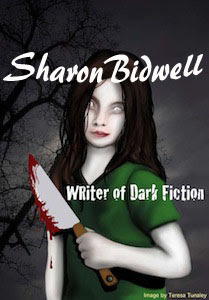It’s just as well only my husband is present during our recent binge ‘catch-up’ watch of The Walking Dead. Like a participant in Gogglebox — a show that invites the audience to watch people watching television (though I’ve only seen adverts for it, some reactions can be to great comic effect) — I’m not a silent viewer.
This is a trait that once drove my relatives to gritting their teeth with irritation, much as I do when an inconsiderate cinema-goer persists on talking during a film, or won’t put their phone away. I appreciate the frustration; however, in the cinema I restrict myself to a few gasps or loud laughter when appropriate. It’s an entirely different experience with an unspoken rule of no talking. I’ve paid a ticket and want to be submersed. I have never, unlike when a grandmother of mine went to the cinema, made not only a public faux pas, but done so twice in the time it took to run through a single showing.
The film was The Time Machine, the classic version starring Rod Taylor made in 1960. She went with her husband and her adult children, and they arrived just as the film started. Although only the opening credits were rolling, my nan, intent on not missing a minute, gaze glued to the screen, fumbled her way along a line of people already seated. I heard the story of how she stopped one seat short of her own chair and plopped herself down on a bald man’s lap. I’m unsure as to the significance of his being bald other than that being the way she forever thereafter described him amidst general hilarity, but I am confident he was as surprised as she. My nan made everyone switch seats so she could sit as far away from him as possible and then sat hidden and, she hoped, forgotten in the darkness...
Until the moment when ‘George’ makes his way into the Morlock cave and we see their gleaming eyes. While the hero tries to creep around and the Morlocks brace to launch an attack, my grandmother gasped, put her hands to her face and shouted out, “Watch out, he’s behind you!” The cinema audience on this occasion met my nan's outburst with a round of laughter adding to the collective enjoyment.
I once worked with a woman who never understood this. When I referred to laughing or crying over stories — viewed or read — she always shook her head. Strange from someone who read all the time and professed to be a bookworm.
“But...but...but…” I stuttered, “how can you not cry over a sad scene?”
“But it’s not real,” she said.
As one who understands that stories are our way of examining and learning how to deal with reality, I beg to differ. As someone who has had to put a book down in a crowded train carriage owing to the risk of a tear or two escaping among strangers with no easy-to-explain reason, I fail to understand this lack of emotional attachment. Thrill seekers get on roller coasters looking for that up and down ride of a lifetime; book lovers take more tight turns and steep slopes lasting far longer than your average amusement park ride. Our pulses speed up, our stomachs grow tight, our throats close, we cry, and scream, and shout...with anger, with pain, with frustration, and with joy. Even when it hurts, we consider ourselves lucky.
Watching a beloved character's harrowing death the other night (even though through reading the graphic novel I had a sense of what was coming), make no mistake, I was vocal about it. Feel free to share whether you experience a story without emotion or find it next to impossible not to laugh when something is funny, cheer when the outcome is good, or scream when it’s the end you were dreading.


No comments:
Post a Comment